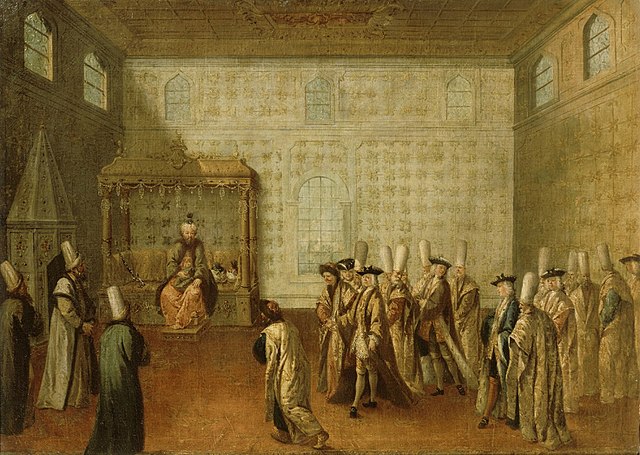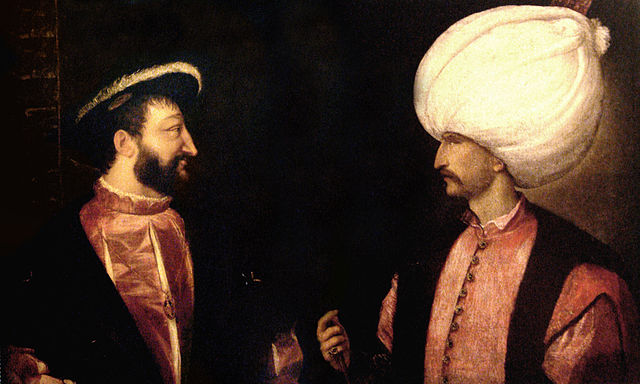Foreign relations of Turkey
Physically bridging Europe and Asia, Turkey is a secular country that has historically pursued a Western-oriented foreign policy. To this end, Turkey uses its global diplomatic network—the third most extensive—of 252 diplomatic and consular missions.
Turkish ambassador's residence in Embassy of Turkey, Washington, D.C.
Northern Cyprus is considered one of Turkey’s closest allies.
President of the European Commission Ursula von der Leyen and Turkish President Recep Tayyip Erdoğan in Vilnius, July 2023
President Erdoğan with then-president Mauricio Macri in Buenos Aires.
Foreign relations of the Ottoman Empire
The foreign relations of the Ottoman Empire were characterized by competition with the Persian Empire to the east, Russia to the north, and Austria to the west. The control over European minorities began to collapse after 1800, with Greece being the first to break free, followed by Serbia. Egypt was lost in 1798–1805. In the early 20th century Austria-Hungary annexed Bosnia and Herzegovina, the Bulgarian Declaration of Independence soon followed. The Ottomans lost nearly all their European territory in the First Balkan War (1912–1913). The Ottoman Empire allied itself with the Central Powers in the First World War, and lost. The British successfully mobilized Arab nationalism. The Ottoman Empire thereby lost its Arab possessions, and itself soon collapsed in the early 1920s. For the period after 1923 see Foreign relations of Turkey.
Ottoman miniature depicting the 1576 capture of Fez.
Ahmed III receiving the embassy of Charles de Ferriol in 1699; painting by Jean-Baptiste van Mour
Francis I (left) and Suleiman I (right) initiated the Franco-Ottoman alliance. They never met in person; this is a composite of two separate paintings by Titian, circa 1530
The destruction of the Ottoman fleet in Battle of Chesma in 1770








